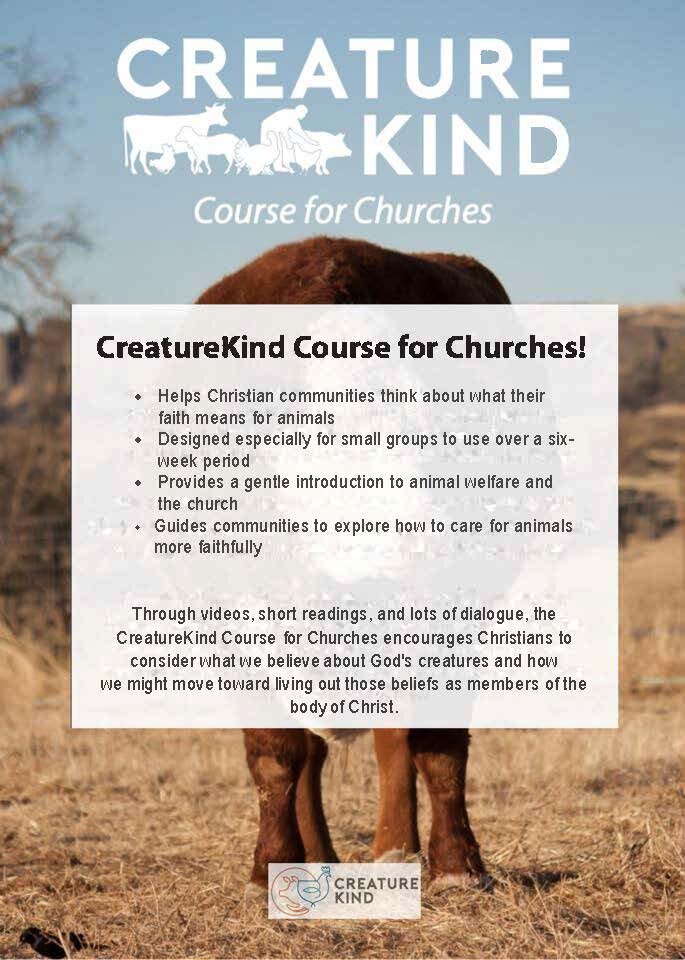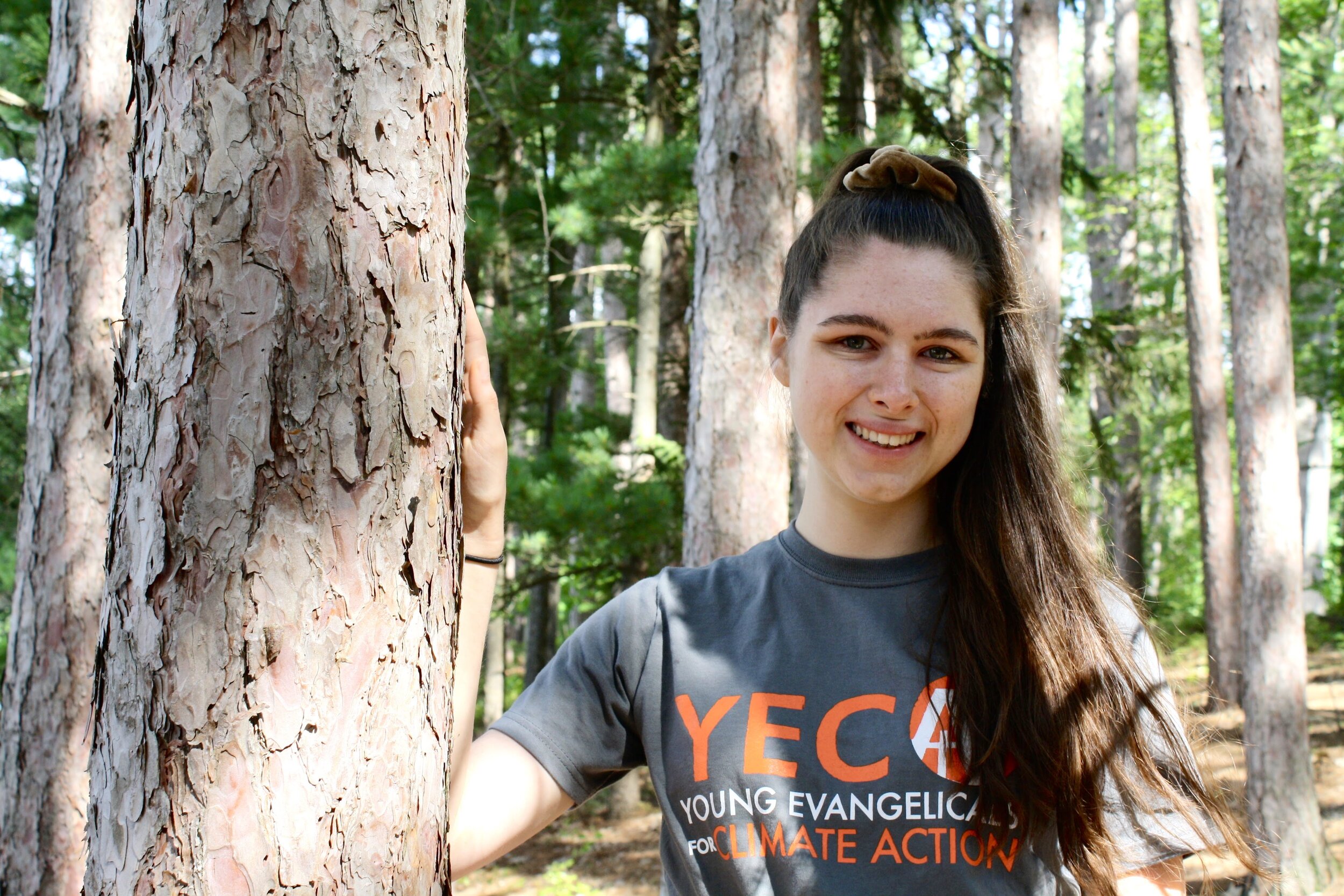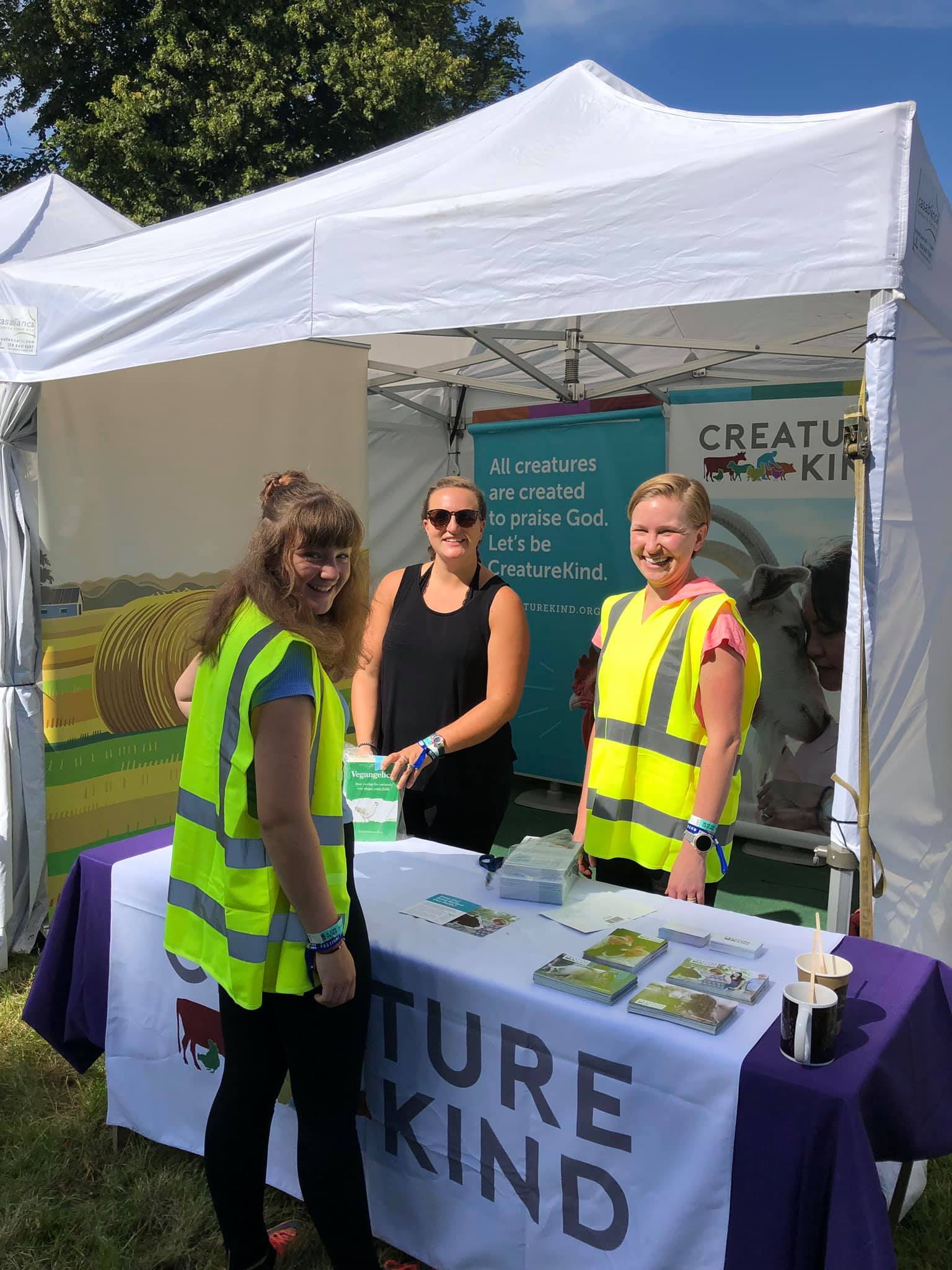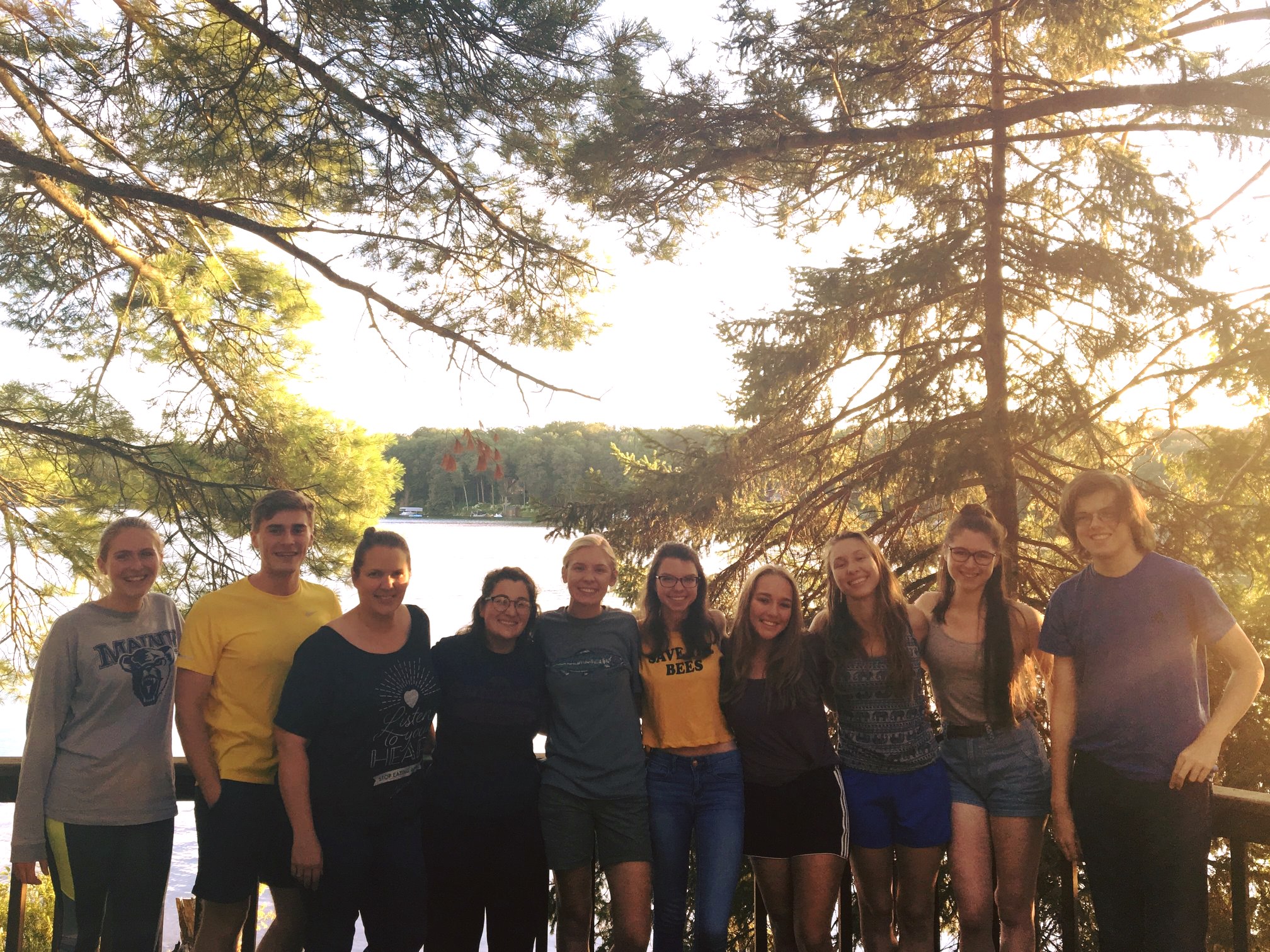On December 4, 1959, Soviet artist Evgeny Vuchetich presented a bronze statue to the United Nations, titled Let Us Beat Our Swords into Plowshares. The sculpture is an image of a man beating a sword into a plowshare, meant to symbolize humankind's desire to end war—the desire to take the tools of violence and war and turn them into tools for peace, tools to benefit humankind rather than harm it. The statue still stands, now green from tarnish, in the northern gardens of the UN headquarters.
This transformational image of turning swords into plowshares is a recurrent theme in Scripture.
"He will judge between the nations and will settle disputes for many peoples. They will beat their swords into plowshares and their spears into pruning forks. Nation will not take up sword against nation, nor will they train for war anymore." -Isaiah 2:4
"He will judge between many peoples and will settle disputes for strong nations far and wide. They will beat their swords into plowshares and their spears into pruning hooks. Nation will not take up sword against nation, nor will they train for war anymore." -Micah 4:3
"You will laugh at violence and famine, and need not fear the wild animals. For you will have a covenant with the stones of the field, and the wild animals will be at peace with you. -Job 5:22-23
These are prophecies of something to come. A peace that is distant, far off, not yet realized. It is a peace for which this "weary world rejoices." In light of Isaiah's prophecy, we are called to confess how we have not been peaceful in various aspects of our lives. We take the time to confess because we need to acknowledge violence was never a part of God's ideal for the world, and yet it plagues us.
…we are called to confess how we have not been peaceful in various aspects of our lives. We take the time to confess because we need to acknowledge violence was never a part of God's ideal for the world, and yet it plagues us.
Isaiah uses other metaphors to illustrate just how foreign violence and death should be to our world. In Isaiah 11, he prophecies of the wolf living with the lamb, lions with calves, leopards with goats, and lions eating straw like the ox. Even the tools that animals used for violence, claws and sharp fangs, seem to be no longer used in this way. Isaiah prophesies of a child leading these predatory animals, feeding bears and playing near cobra dens. Of course, right now, trying this might not be the best idea. But what a thought! Not only will peace reign in human affairs, but across the entirety of creation and including all God's creatures.
I cannot help but wonder what the relationship between humanity and the animal kingdom will look like. If there are no more swords, no more violence, no more death, could there be no more killing between species, too?
Some may argue peace won't reign in the animal kingdom, that predators will always be predators. I understand how faithful Christians differ on these issues, yet I struggle to see how there could have been predation before the Fall if Genesis 1:30 really means what I think it means.
"Then God said, 'I give you every seed-bearing plant on the face of the whole earth and every tree that has fruit with seed in it. They will be yours for food. 30 And to all the beasts of the earth and all the birds in the sky and all the creatures that move along the ground—everything that has the breath of life in it—I give every green plant for food.' And it was so." -Genesis 1:29-30
The reign of peace and flourishing across all creation—what Hebrews call "shalom"—seems to have been God's original intention for the created order. And Christ entered into this world to begin bringing that heavenly kingdom to bear on our broken, violent, sword-wielding and war-torn world. I believe this peace will affect humans and animals alike.
I see this in other places in Scripture that point to a future peace as well. Over and over again, Scripture underscores how deeply God cares for creation:
"In that day I will make a covenant for them with the beasts of the field, the birds in the sky and the creatures that move along the ground. Bow and sword and battle I will abolish from the land, so that all may lie down in safety." -Hosea 2:18
"And should I not have great concern for the city of Nineveh, in which there are more than a hundred and twenty thousand people who cannot tell their right hand from their left—and also many animals?" -Jonah 4:11
We know that Christ has ushered in the new kingdom now, but not yet fully. This is the tension in which we now live. We celebrate Christ's first coming, yet we hope for Christ's second coming to bring the fullness of joy, love, and peace.
So where am I going with this? Even though we live in this tension, I believe we can still put into practice some of the aspects of the Kingdom of God. Even as we pray the Lord's prayer, we can remember that even now, we can begin living and acting in ways that cause small breakthroughs of peace into our world.
To pray, "…Your kingdom come, Your will be done, on earth as it is in heaven," is to pray that God's peaceable Kingdom will now begin to be partially realized in our world. I believe it is beginning to not only ask that Christ's peace will one day reign, but that we may become agents of Christ's peace today. If we are praying these words regularly, we must begin pondering how we are to see this in our own lives.
I think a valuable way of assessing this question is looking to Isaiah, and to symbolic ways we can live in peace rather than in violence. One suggestion might be eating a greener, more plant-based diet as a small, specific way we can practice peace today. Even as I ponder how we have not been instruments of peace, I wonder if this small act could begin, at least in part, beating our swords into plowshares.
I find it hard to believe that the images we see in Isaiah, at creation, and in the covenant God makes between man and animal are merely analogies. Could they not be glimpses of reality as it once was, and what it will one day be again? Could my choice to eat less meat be a small act of the coming peaceable kingdom?
Have you pondered how small actions and small practices can influence much larger events? Christ encourages this way of thinking by declaring that someone who can be trusted with little can also be trusted with much. This principle can be applied in many ways, one of which I believe is that small acts have the power to influence much greater acts. Perhaps choosing something different on your plate could be a small and subtle way to influence your interaction with someone else in your life. Perhaps choosing compassion for one of God's creatures could be a tool for the Holy Spirit to soften your heart toward a difficult or stressful family member. What if choosing to practice peace at the table could begin to train our hearts toward the coming peace, when the Kingdom is finally and fully realized?
What if choosing to practice peace at the table could begin to train our hearts toward the coming peace, when the Kingdom is finally and fully realized?
I understand that Christians differ on these issues, and even on their views of peace regarding the animal kingdom. I personally believe that the Garden was, and the coming Kingdom will be, a place without violence or death for all who have lifeblood. I believe that the images we see in Isaiah are glimpses of the large arc from creation through the fall and to final redemption. This affects my interpretation on how the coming kingdom is played out in my day to day life. Places like factory farms do not only harbor darkness, despair, and pain for animals, but also for fellow humans who have to work in those environments and for God's good earth.
Finally, while I am writing that the act of eating a plant-based diet can be an act of peace, the goal for all of us who follow Christ is to ask how we might begin practicing God's Kingdom now. Whether it concerns the choices we make on our plates, our politics, how we relate to our family, or any number of the myriad decisions we make over the course of our lifetimes, the question is still: How can I be an instrument of peace?
Tim Mascara is an Associate Pastor at StoneBridge Church Community. He lives in Davidson, NC with his wife and two young boys. This article was originally published by Evangelicals for Social Action and is reprinted here with permission.
















